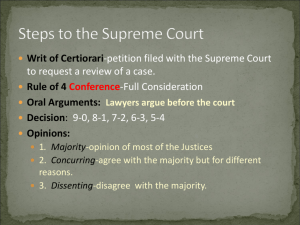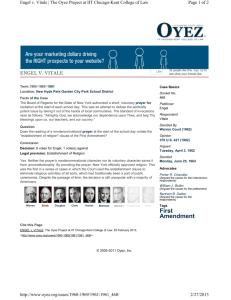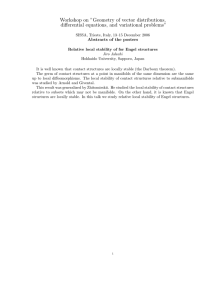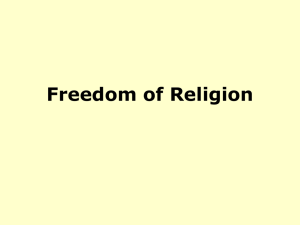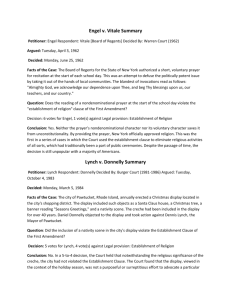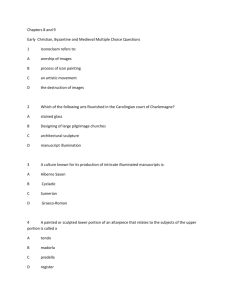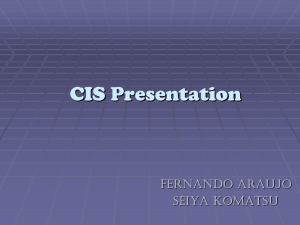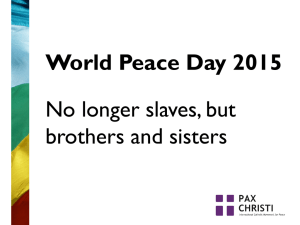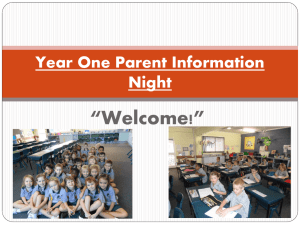Engel v Vitale – Katrina and Alex
advertisement
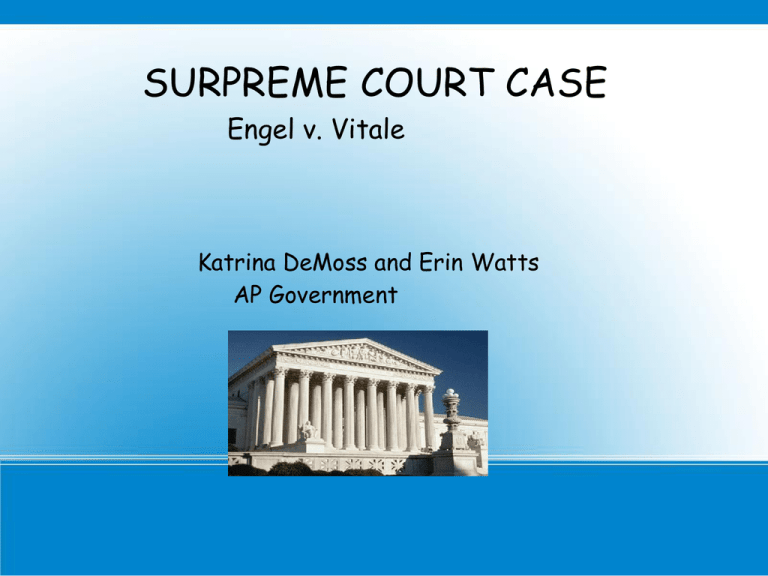
SURPREME COURT CASE Engel v. Vitale Katrina DeMoss and Erin Watts AP Government CASE BACKGROUND In 1951, the Board of Regents for the State of New York authorized a voluntary, nondenominational prayer at the start of each public school day. The students were not required to participate in the daily prayers. Though the prayers were considered nondenominational ,("Almighty God, we acknowledge our dependence upon Thee, and beg Thy blessings upon us, our teachers, and our country."), a group of irritated families of public school children considered the prayers contradictions to their personal religious beliefs. The case was put on the supreme court docket, and the trial began on April 3rd 1962. LEGAL QUESTION Does reading a voluntary, nondenominational prayer in public schools violate the first amendment. (establishment of religion)? Congress shall make no law respecting an establishment of religion, or prohibiting the free exercise thereof. THE DECISION Yes. Just because the prayers were considered non denominational, and were recited on a voluntary basis, does not mean that it is appropriate under the U.S constitution. It was ruled that, by allowing the prayer, New York was officially accepting religion, which contradicts the establishment of religion clause in the first amendment. This was decided in a 6 to one vote, in which one justice refused to participate in for personal reasons. Quote From Justice Hugo Black Justice Hugo Black wrote: “We think that by using its public school system to encourage recitation of the Regents’ prayer, the State of New York has adopted a practice wholly inconsistent with the Establishment Clause…It is no part of the business of government to compose official prayers for any group of the American people to recite as a part of a religious program carried on by government.” THE PRECEDENT Engel v. Vitale set a strong precedent for similar court cases. It basically set the record straight that Church and state are meant to be kept separate under our constitution. The verdict of Engel v. Vitale helped to influence many other cases. PUBLIC SUPPORT Although fewer in number, supporters of prayer were also well organized, and amicus briefs were submitted by twenty state attorneys general, and others. By and large the supporters felt that the spirit of the Establishment Clause was not violated in this case, and that the Free Exercise Clause supported the presence of non-coercive religious activities even in public schools. Judgment and Justification Although a time set aside for voluntary prayer in public schools seems harmless enough, it does violate the first amendment of the constitution. I agree completely with the rulings of the supreme court. While it may be an unpopular ruling, when speaking legally, it makes perfect sense. QUESTIONS? SOURCES "Engel v. Vitale The Issue: Prayer in the Public Schools." Engel v. Vitale n. pag. Web. 17 Feb 2011. <http://www.pbs.org/jefferson/enlight/prayer.htm>; The Oyez Project, Engel v. Vitale , 370 U.S. 421 (1962) available at: (http://oyez.org/cases/1960-1969/1961/1961_468) (last visited Thursday, February 17, 2011). "Engel v. Vitale (1962)." Engel v. Vitale (1962) n. pag. Web. 17 Feb 2011. <http://billofrightsinstitute.org/page.aspx?pid=682>; The case was pre-1962, which relates to the photo above with the children praying.
